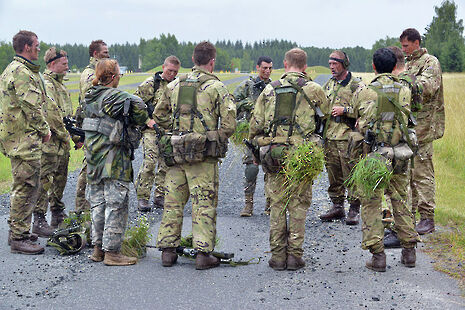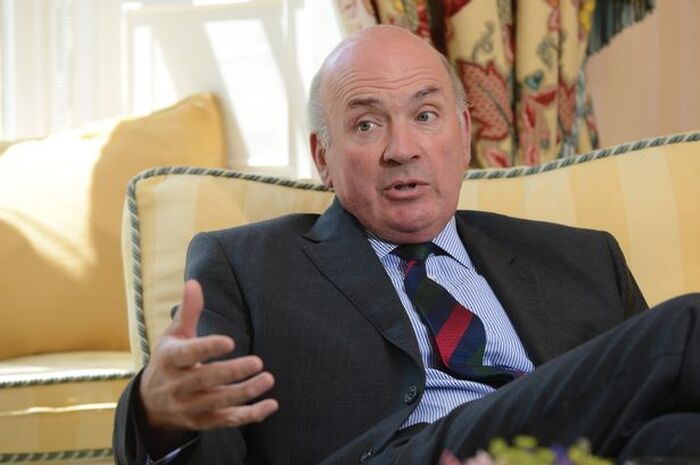Preparing for war: the case for conscription
This week, columnist Naman Habtom-Desta argues that we must recognise the benefits of conscription, both for individuals and societies

On 13 January, it was revealed that the Swedish government would reissue, for the first time in decades, a crisis-guide ominously titled Om Kriget Kommer (‘If the war comes’) to every household in the nation. First printed during the Second World War, this neutral northern European state went from having a bunker in every home (which still applies to 70% of the current population) and the capacity to mobilise hundreds of thousands of men in a few months during the height of the Cold War to a sorry state of affairs whereby the Defence Department is unable to fill vacancies. The solution: conscription.
Conscription varies in type across time and place and therefore a single conception of mandatory military service cannot be offered. By identifying the purpose, one can identify the suitable form of conscription one should adopt. For some nations, it may be to fulfil recruitment shortfalls, in others to fulfil an ideological mission. Both can be of great value.
A military should not primarily be a tool of foreign policy. Rather, it should seek to achieve the physical security of the nation against an external and imminent threat. Yet, by cutting off the army from the general populace, the citizenry becomes less invested, and thereby less opposed, to military involvement in foreign wars. Public outcry was immense in the United States during the Vietnam War when a military draft was in place whereas wars since then have been met with a relatively muted response. Though counterexamples can be found (indeed, the United States and the United Kingdom both had military conscription during the earlier Korean War), liberal use of military force has been a notable aspect of many nations that have turned their back on obligatory military service.
“A case can and ought to be made for the social benefits of a universal draft”
National armies should be national, yet a system based on voluntary service ensures that this is not the case. Economic needs are often times a key motive amongst young recruits, some with few other prospects. In addition to a salary and housing, joining the army often times comes with other benefits, with some countries even offering to finance university education. While superficially appealing, it inevitably leads to the disproportionate enrolment of economically vulnerable citizens rather than being a gathering of a country’s entire citizenry in the defence of the nation. What is the difference between economically motivated military service and being a mercenary? Very slight, with the former often times paid less than the latter with the facade of legality.
Military service is not exclusively about war. Not only do many countries offer a civilian alternative to those called up but some militaries even participate in civilian oriented missions. These include clean up efforts after natural disasters, all the more relevant due to the growing impact of climate change. Evacuation of civilians from areas devastated by wildfires or storms, for example, are often times enabled by military forces. With 2017 having been one of the hottest years on record, one can be sure that these issues, and our response capabilities, will be of greater and greater importance as time passes.
Though most countries with drafts only have a partial one, often times allocated by a lottery with the aim of only filling recruitment shortfalls, a case can and ought to be made in regards to the social benefits of a universal draft. For many, one’s experience of citizenship is limited to one region, one city, or even one neighbourhood. By adopting universal conscription, young people can and will be exposed to a variety of social, class, regional, and ethnic backgrounds that would otherwise simply remain an alien conception with no bearing on one’s own life. Studies have repeatedly shown that increased exposure to other social groups reduces one’s own prejudicial views, a vital ingredient in a harmonious society.
What is the likelihood of any of this? Not particularly high, particularly in the United Kingdom, which lacks a tradition in large standing armies. The current debate on military service and, more noticeably, military readiness tends to focus on short-term perceived conventional threats. This unlikelihood, however, should not push us towards apathy, since its utility is as important as ever
 News / Cambridge academics sign open letter criticising research funding changes22 February 2026
News / Cambridge academics sign open letter criticising research funding changes22 February 2026 News / Supporters protest potential vet school closure22 February 2026
News / Supporters protest potential vet school closure22 February 2026 News / University Council rescinds University Centre membership20 February 2026
News / University Council rescinds University Centre membership20 February 2026 News / Hundreds of Cambridge academics demand vote on fate of vet course20 February 2026
News / Hundreds of Cambridge academics demand vote on fate of vet course20 February 2026 News / Union cancels event with Sri Lankan politician after Tamil societies express ‘profound outrage’20 February 2026
News / Union cancels event with Sri Lankan politician after Tamil societies express ‘profound outrage’20 February 2026










